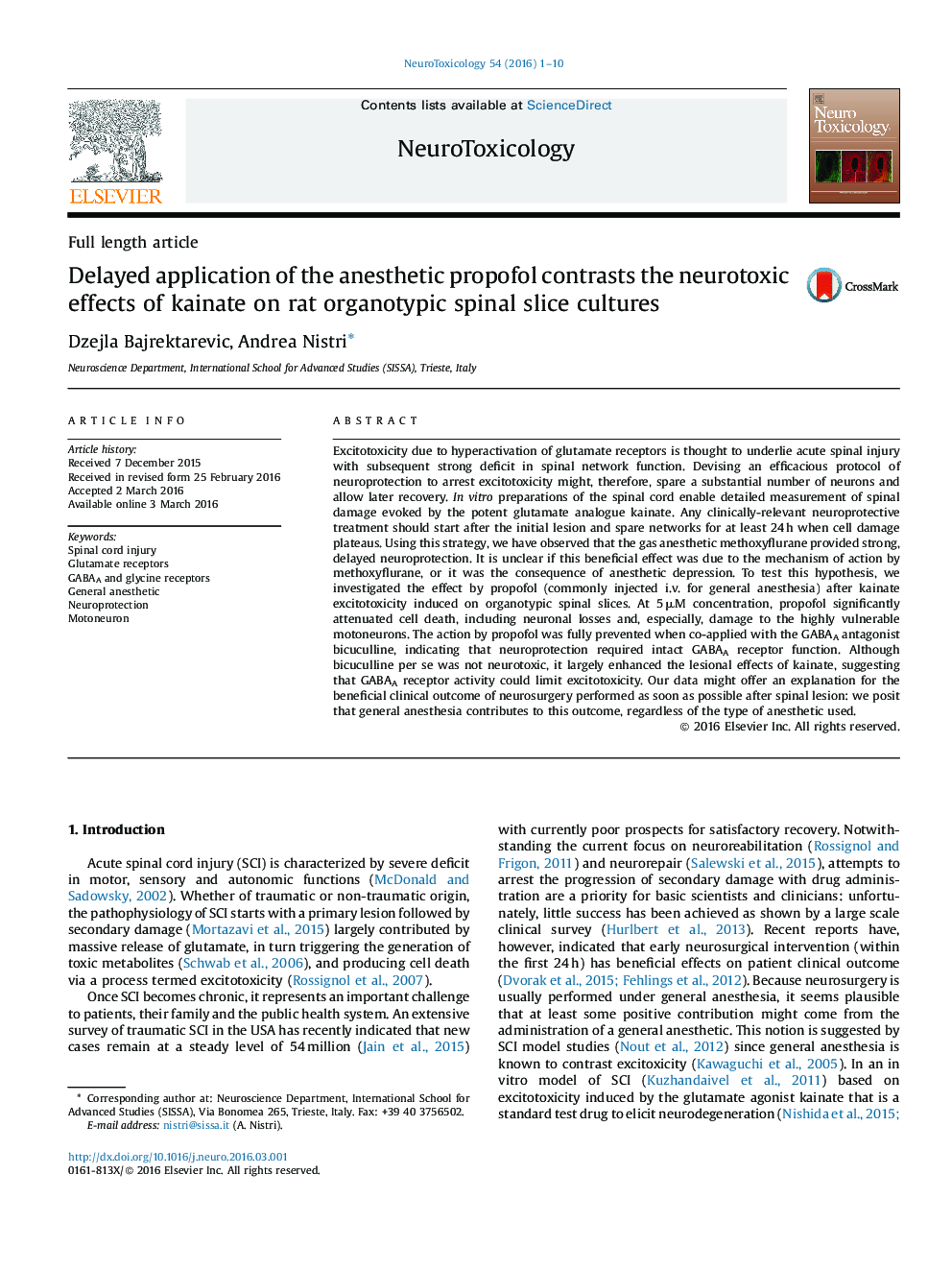| Article ID | Journal | Published Year | Pages | File Type |
|---|---|---|---|---|
| 5854713 | NeuroToxicology | 2016 | 10 Pages |
â¢Delayed application of propofol blocked excitotoxic spinal neurodegeneration in vitro.â¢Propofol strongly protected motoneurons and premotoneurons.â¢Propofol protection was prevented by bicuculline and unaffected by strychnine.â¢Bicuculline and strychnine alone were not toxic, yet intensified excitotoxicity.â¢Delayed application of general anesthetics may limit acute spinal damage.
Excitotoxicity due to hyperactivation of glutamate receptors is thought to underlie acute spinal injury with subsequent strong deficit in spinal network function. Devising an efficacious protocol of neuroprotection to arrest excitotoxicity might, therefore, spare a substantial number of neurons and allow later recovery. In vitro preparations of the spinal cord enable detailed measurement of spinal damage evoked by the potent glutamate analogue kainate. Any clinically-relevant neuroprotective treatment should start after the initial lesion and spare networks for at least 24 h when cell damage plateaus. Using this strategy, we have observed that the gas anesthetic methoxyflurane provided strong, delayed neuroprotection. It is unclear if this beneficial effect was due to the mechanism of action by methoxyflurane, or it was the consequence of anesthetic depression. To test this hypothesis, we investigated the effect by propofol (commonly injected i.v. for general anesthesia) after kainate excitotoxicity induced on organotypic spinal slices. At 5 μM concentration, propofol significantly attenuated cell death, including neuronal losses and, especially, damage to the highly vulnerable motoneurons. The action by propofol was fully prevented when co-applied with the GABAA antagonist bicuculline, indicating that neuroprotection required intact GABAA receptor function. Although bicuculline per se was not neurotoxic, it largely enhanced the lesional effects of kainate, suggesting that GABAA receptor activity could limit excitotoxicity. Our data might offer an explanation for the beneficial clinical outcome of neurosurgery performed as soon as possible after spinal lesion: we posit that general anesthesia contributes to this outcome, regardless of the type of anesthetic used.
